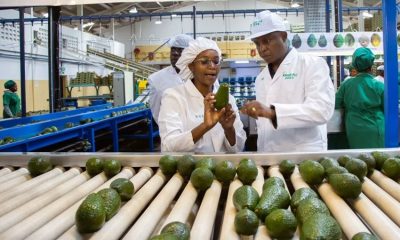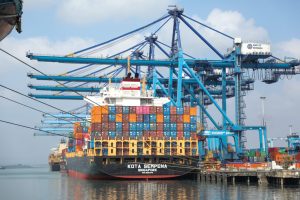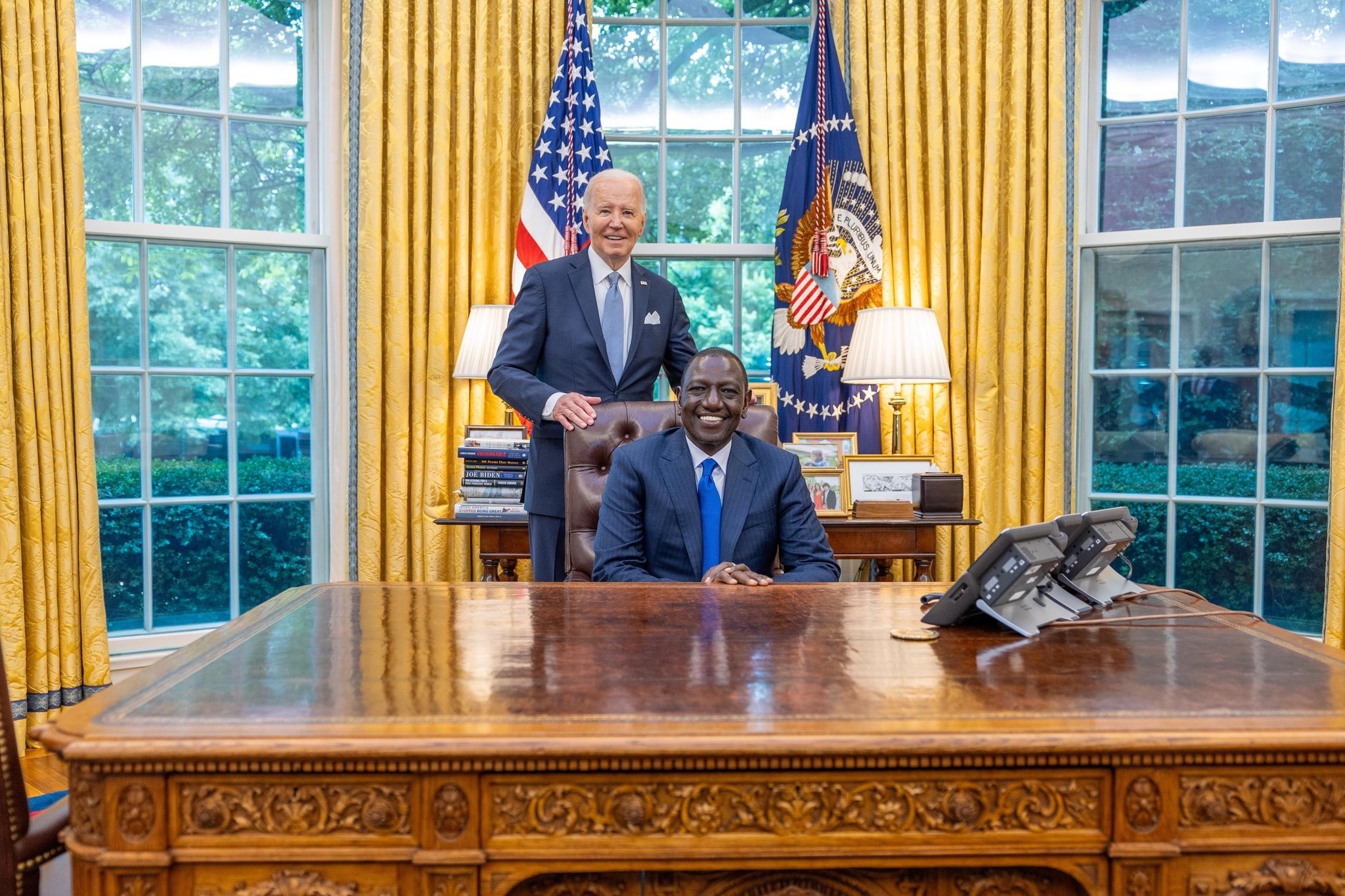Business
KRA Deploys AI to Combat Smuggling at Mombasa Port
The scanners, currently on pilot since early 2025, are scheduled for full rollout by June 2026.

Kenya’s tax authority is revolutionizing cargo inspection at the Port of Mombasa through artificial intelligence technology, marking a significant shift from decades-old manual inspection methods that have long frustrated traders while creating opportunities for smugglers and tax evaders.
The Kenya Revenue Authority (KRA) has begun deploying AI-enabled scanners that can analyze cargo images in seconds, automatically flagging suspicious consignments for detailed inspection.
This represents a dramatic improvement over traditional methods where customs officers would spend up to two minutes scrutinizing each container’s contents on ordinary scanners.
The new technology uses sophisticated image analysis to detect irregularities in cargo shipments.
When goods pass through the scanners, the system generates detailed images that highlight anything unusual or suspicious.
For instance, if an importer attempts to conceal additional items by bundling them together, the resulting darker image patterns are automatically flagged for further investigation.
According to a customs officer familiar with the system, who requested anonymity, the AI technology is part of a broader risk-based profiling approach that eliminates the need to open every container.
Instead, only flagged consignments undergo complete verification, significantly boosting efficiency while reducing clearance times at Kenya’s busiest port.
“We no longer open every container. Instead, those flagged are subjected to 100 percent verification, where the entire cargo is inspected. This not only boosts efficiency but also cuts clearance times at the port,” the officer explained.
Commissioner-General Humphrey Wattanga told a local newspaper that the initiative aims to seal revenue leakages that cost the Exchequer millions annually while balancing faster trade facilitation with stronger enforcement against tax cheats.
The scanners, currently on pilot since early 2025, are scheduled for full rollout by June 2026.
“At the moment, we largely use our own staff or the naked eye to read cargo images, but with machine learning and AI, we can improve and enhance that capability,” Wattanga said during an August interview.
The technology promises to address long-standing challenges at Kenya’s ports, where shrewd importers have historically exploited human-led inspections by concealing goods, under-declaring volumes, or misclassifying items to dodge taxes.
Tax experts welcome the innovation while urging careful implementation.
Hadijah Nannyomo, a Nairobi-based partner for international trade and indirect taxes at EY, highlighted the technology’s potential to reduce human discretion and bias in cargo clearance. However, she cautioned against over-reliance on AI without human oversight.
“The biggest advantage is to limit human bias and discretion, as well as the avoidance of concealment of cargo. The risk is hallucination by AI, which may misinform if there is no human intervention and checks,” Nannyomo warned.
Beyond customs operations, KRA is integrating AI technology into broader administrative functions, including flagging risky transactions, identifying discrepancies between financial statements and tax returns, and detecting fraud patterns.
This forms part of a comprehensive five-year digital transformation strategy running through June 2029.
The authority is also establishing a data analytics center of excellence that will consolidate information from various sources, including Business Registration Services and private sector databases, to build detailed taxpayer profiles.
This initiative draws inspiration from advanced tax jurisdictions, including the UK’s HMRC, Swedish Tax Agency, and Norwegian Tax Administration.
The technological upgrade comes amid heightened scrutiny of KRA’s operations following youth-led protests against new tax measures in the Finance Act 2024.
The agency has already expanded its use of various databases, from bank statements and import records to utility connections and luxury car registrations, to identify tax evaders.
As Kenya positions itself as a regional trade hub, the success of these AI-powered systems could serve as a model for other East African countries grappling with similar challenges in customs enforcement and revenue collection.
The technology’s ability to process thousands of daily container arrivals efficiently while maintaining security standards will be crucial for sustaining Mombasa’s role as the region’s primary gateway port.
The pilot program’s results will determine whether this technological leap can finally close the revenue gaps that have long plagued Kenya’s customs operations while maintaining the delicate balance between trade facilitation and tax compliance.
Kenya Insights allows guest blogging, if you want to be published on Kenya’s most authoritative and accurate blog, have an expose, news TIPS, story angles, human interest stories, drop us an email on [email protected] or via Telegram
-

 Business5 days ago
Business5 days agoKakuzi Investors Face Massive Loss as Land Commission Drops Bombshell Order to Surrender Quarter of Productive Estate
-

 Investigations6 days ago
Investigations6 days agoINSIDER LEAK REVEALS ROT AT KWS TOP EXECUTIVES
-

 Investigations2 weeks ago
Investigations2 weeks agoPeter Agoro Legal Battles Reveal How EACC Framed a Whistleblower to Protect Corrupt Elites
-

 Investigations3 days ago
Investigations3 days agoCNN Reveals Massive Killings, Secret Graves In Tanzania and Coverup By the Govt
-

 Politics2 weeks ago
Politics2 weeks agoRuto Set to Dominate ODM@20 in Mombasa, Positioning Himself as Raila Odinga’s Political Heir Ahead of 2027
-

 Business5 days ago
Business5 days agoBANKS BETRAYAL: How Equity Bank Allegedly Helped Thieves Loot Sh10 Million From Family’s Savings in Lightning Fast Court Scam
-

 News6 days ago
News6 days agoEXPOSED: How Tycoon Munga, State Officials, Chinese Firm Stalled A Sh3.9 Trillion Coal Treasure In Kitui
-

 News6 days ago
News6 days agoEx-Boyfriend Withdraws Explosive Petition to Remove DPP After Criminal Case Against Capital FM Boss Resurfaces




















